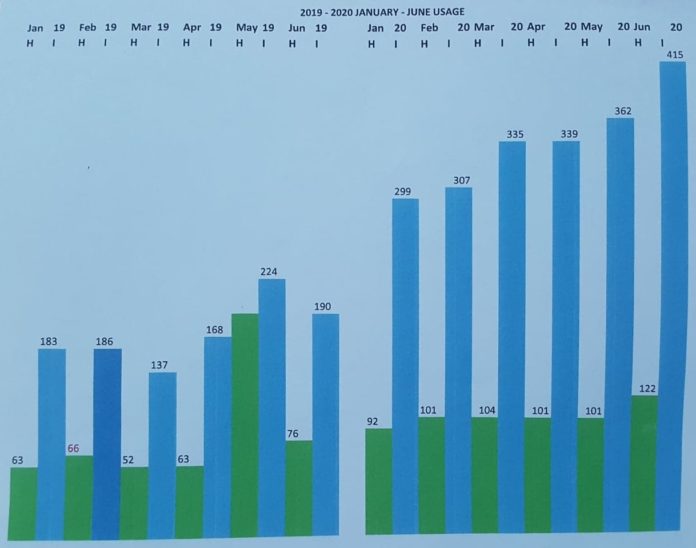
Demand for food aid has surged during the COVID-19 pandemic, including at the Perry Food Pantry.
The number of individuals served in June was 120% higher than the number served in June 2019 and 39% higher than January 2020.
“The need in the Perry area is great,” said Lou Hoger, site coordinator for the Perry Food Pantry. “We’ve had some crucially important donations recently from the Bock Foundation, Perry Economic Development, 21st Century Rehab and others, including many generous private donations, and also grant assistance from the city of Perry. We’re meeting the needs but can’t let up.”
The Perry trends are reflected nationwide as the economy reels from the public health emergency. Some 22.2 million American households received Supplemental Nutrition Assistance Program (SNAP) benefits in April, up from 18.9 million in January, according to U.S. Department of Agriculture data. The average SNAP benefit is about $267 a month for each household.
In June 2020 the Food Bank of Iowa distributed more food than in any previous month in the organization’s history. The June high of 1.95 million pounds was a 55% increase over the June 2019 rate. The Food Bank’s previous record distribution month was April 2020, further underscoring the COVID-19-led increase in food insecurity in Iowa.
With more than 350,000 Iowans facing food insecurity, Iowa Lt. Gov. Adam Gregg was tapped in April to lead an ad hoc panel, the Feeding Iowans Task Force, that aims to coordinate with groups like the Food Bank of Iowa and Volunteer Iowa to assist with food insecurity.
Michelle Book, president and CEO of the Food Bank of Iowa, used the phrase, “pandemic poverty,” to describe the surge in demand for food assistance among low-income Iowans, including many elderly Iowans and single mothers. Recent mobile food pantry events in Des Moines and Ottumwa drew record-setting crowds and tested the food bank’s resources.
“These unique and necessary day-long distribution efforts required precision planning and marshaled every resource at our disposal, including passionate staff, dedicated volunteers
and board directors and caring community law enforcement,” Book said.
Hoger said supply shortages in April and May caused spikes in prices, but the market now is less unstable.


















